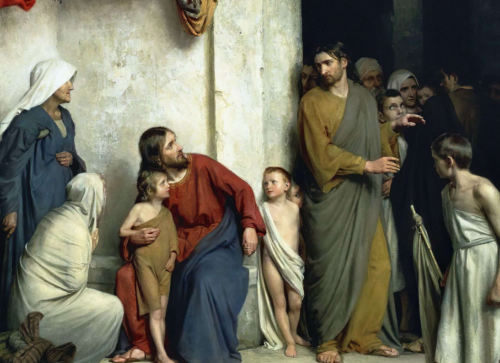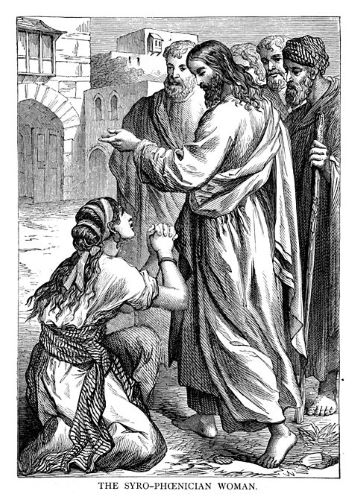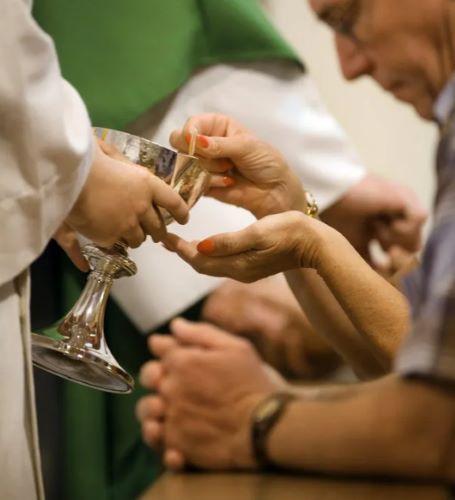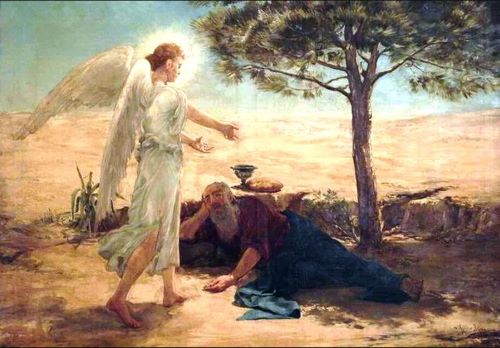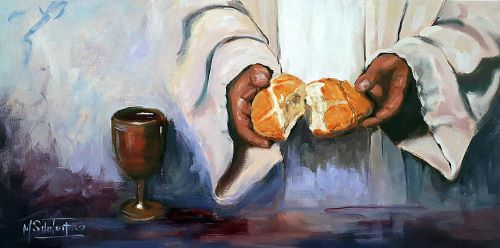
Cornerstones
Year A
Exodus 20:1-4, 7-9, 12-20
Psalm 19
Philippians 3:4b-14
Matthew 21:33-46
May the words of my mouth O God… speak your truth…
The writers of Exodus were familiar with various kinds of legal documents… they knew about many of the different forms used in and around the Near East… and one of them was the suzerain-vassal treaty form… a suzerain was a king… a ruler… a landowner… and a vassal was a slave… a serf… maybe a tenant farmer or sharecropper… the one had power… the others did not…
A treaty form like this… either agreed to… or not… by a people being conquered… established who the ruler was… their position in relation to the conquered people… and laid out the expectations about their behavior…
Many of these ancient legal documents… these contracts… date to the fourteenth and thirteenth centuries BC… and some Assyrian forms can also be dated to about the seventeenth century… and they exerted a powerful influence when Exodus was written… because they’d already been around for almost 500 years…
And having just come out of four-hundred years of slavery… the Israelites knew what it was to be dominated… they knew about the hardships that domination brought with it… and the meager if any benefits it provided… but using the form of an ancient Near Eastern treaty as the basis of the Ten Commandments in this way… and for this purpose… was unprecedented genius… now the Ten Commandments affirmed for the people who God was… what God had done for them… and laid out expected behaviors… and established an ordered relationship with them… and now God became their magnanimous suzerain… and the Israelites became recipients of God’s mercy…
Later on… passages in the Book of Joshua outlined more specifically what they could and couldn’t do… the rewards for compliance… and the consequences for missing that mark… in Joshua 24:19-27… Joshua said to the people… basically… Look… you’d better know what you’re getting yourselves into… it’s not too late to say No… because if you say Yes and fail… the Lord will deal harshly with you… and they said… We will serve the Lord… and Joshua replied… You are witnesses against yourselves… by your own words you have chosen to serve the Lord…
Now in Philippians… Paul identifies himself not only as a Jew… not only as a follower of the Law… but as a Pharisee… and because of how ardently he follows the Law… he considered himself blameless… as a Pharisee… he believed that God had disclosed God’s will within the Law… and anyone who completely obeyed the Law would therefore be in right relationship with God… but for Paul… all of this becomes rubbish compared to what he has found in Christ… Paul has repented… he has turned his attention from the boundaries of written law… to the boundless law in Christ…
There’s a new series on Apple TV… set in the future… it depicts a society contained in an underground silo… hence the series’ name… Silo… and it’s huge… there are 144 levels… each one forty feet tall… which overall is equivalent to four Empire State Buildings stacked on top of each other… the residents do not know why they are there… they do not know who built the silo… they don’t know why everything outside of the silo is as it is… or when it will be safe to go outside… they only know that that day… is not today…
But the physical limitations imposed by the silo itself… impinge on and exert limitations on the questions they’re able to imagine and ask… and inform the questions they’re forbidden to ask… that’s how it was for the Pharisees… they believed that the only way to please God… was by perfect adherence to the Letter of the Law… that nothing else mattered… and that it could not be questioned…
And Jesus tells them the parable in today’s Gospel… in which the landowner is God… the slaves are the prophets… who are not like actors on a stage worthy of praise or blame… but are more like the prompters in the wings reminding the people of their lost lines… the tenants are the Pharisees… and the landowner’s son is Jesus… and when Jesus asks the Pharisees what they think the landowner ought to do to those who killed the prophets and his son… their answer echoes the passage from Joshua… You are witnesses against yourselves…
They ought to have said… I’m taking the fifth… but their myopic… missing-the-point-of-God’s love… is to put the tenants to death… and lease the vineyard to others who will make sure the vineyard bears fruit… and who will share it with the landowner…
For the Pharisees… the Law was the shell of the Silo… it functioned as their whole universe… and informed their worldview… they couldn’t comprehend God’s light in Christ… and even when they saw it… even when they experienced it themselves and the miracles he performed… they had no reference point… they had no way of framing it… and they would have been afraid to try… because it would have forced them into a new way of understanding themselves and others… and all of their power and authority and privilege would be gone… and unlike Paul… who had a change of heart… they couldn’t see to God’s boundlessness beyond… the rigidity of their understanding needed to be tempered in Jesus’ love…
And Jesus quotes Ps. 118:22 to them… the stone that the builders rejected has become the chief cornerstone… and his remark about it… is that the one who falls on this stone will be broken to pieces… now… a cornerstone is a stone which forms the base of the corner of a building… and joins two walls… but a cornerstone is more… it can also be figurative… it can be an important quality or feature on which a particular thing is based… or depends… so we can say that the Ten Commandments are the cornerstone of God’s law… that these Ten Words… or ten principles form the cornerstone for the Two Great Commandments… to love God with all our heart… and soul… and mind… and to love your neighbor as yourself… and when we fall on this cornerstone… when we come face to face with that to which God is calling us… and become aware of just how far from that goal we are… not just individually… but collectively… when we are called up short by it… it will break us to pieces… because we become the tenants who think we can disregard the landowner’s son and keep all the produce for ourselves… as Psalm 130:3-4 says… If you kept account of our sins… Lord… who could survive… but Yours is the power to forgive…
I’m usually very observant… and when there’s an upgrade to my computer’s operating system… I usually notice almost all of the changes… most of them are intentional and provide additional features… but some of them are caused by errors in the underlying code… and cause glitches… and if I call technical support… the question I almost always ask… is whether this is expected behavior or not…
And compared to what’s going on in the world these days… what we’re being called to seems like grace that’s too radical… forgiveness that’s too radical… and love that’s just way too radical… but deep down in the underlying code… and from God’s point of view… all of that is only normal… typical… expected behavior…
And so I wonder… in what kind of silos do we live… what kinds of boundaries have we enshrined in myopic laws… which are less about fostering beloved community… and are more about controlling others… and from which we need to break free… so that we can embody Christ’s light… and so we’ll never have to be witnesses against ourselves… when we say Yes to God…

